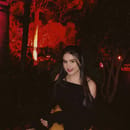Education is meant to take us into this future that we can’t grasp. Nobody has a clue about what the world will look like in ten years. Yet, schools are meant to teach us for it. Every education system around the world has the same subject hierarchy; it doesn’t matter where you go. At the top there are Maths and Languages, then the Humanities and Arts at the bottom. Plus, there usually is a hierarchy within the arts: art and music are given higher status in schools than dance and drama. Have you ever wondered why?
The answer is simpler than it appears: schools kill creativity. We are educating people out of their creative capacities. We are running education systems where there is nothing worse than making mistakes. “You are supposed to know the right answer” is what often teachers tell us when we bravely put our hand up to ask a question. We stigmatise mistakes, but just by being prepared to be wrong and to think outside the box, you can come up with something original and creative.
When I was attending elementary school, our art teacher asked us to copy a drawing from the textbook. We all knew what to copy means: same shapes, same colours, exactly the same image. However, my deskmate decided to paint the blue sky of the original picture with pink and red shades like a sunset. His drawing struck everyone, but not the teacher. She told him that this wasn't what she had asked for and that he needed to do it another time "correctly". In that pink sky, our teacher just saw a mistake, a non- completed task and she was blind in the face of its originality and creativity. This is only an example of how our education systems unfairly don't appreciate the ability to produce original and unusual ideas or to make something imaginative.
The reason is that our systems are measured on the idea of academic ability. Since most of us were children, we have been kept away from some subjects, that we have may even like, because we would never get a job, thanks to them. You will never be a musician, so don’t study music. You will never be a painter, so don’t study art. Isn’t that right? Our parents and our teachers restrain our creativity and our dreams because the only future they can see for us is going to university. The whole education system is a long process to university entrance. In several schools, "Success" is defined as getting high marks on tests, with results mattering more than the process of learning or the process of getting to the answer. As a consequence, many brilliant and creative people believe there are not, because the thing they are good at isn’t valued at school.
Albert Einstein once said that “The true sign of intelligence is not knowledge but imagination”. I believe, and everyone should, that we need to keep this sentence in mind and change our conception of the richness of human capacity. How? By rethinking the principles on which schools are based, by appreciating our creative capacities for their value and by educating future generations, so they can face this uncertain future without being afraid of daring and thinking out of the box.



